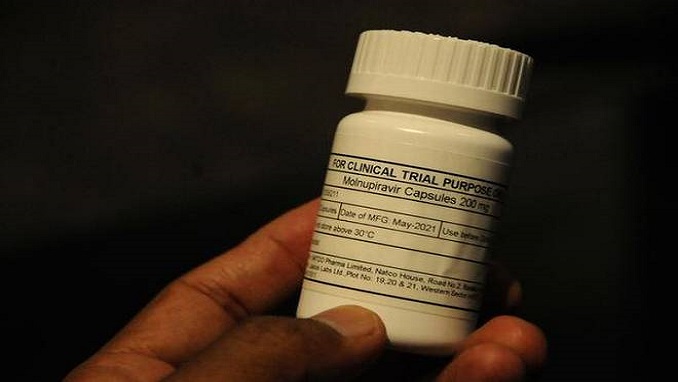
The interim results of the clinical trial of molnupiravir, Merck & Co Inc’s experimental oral drug for Covid-19, published on Friday show that it reduces the chance of hospitalization or death for people at risk of severe disease by around 50%, Reuters reports.
At the recommendation of outside monitors, the Phase 3 trial of the drug is being stopped early due to the positive results with Merck and its partner Ridgeback Biotherapeutics planning now to seek emergency use authorization for the drug in the US as well as to submit applications to regulatory agencies worldwide.
It’s unclear how long the FDA review of the drug would take.
Molnupiravir, designed to introduce errors into the genetic code of the virus, will be the first oral antiviral medication for Covid-19 if authorized and will change, according to Merck’s chief executive officer Robert Davis, the dialogue around how to manage Covid-19.
The drug is also being studied for preventing coronavirus infection in people exposed to the virus and it’s in a Phase 3 trial and the viral sequencing so far shows it is effective against all variants of the coronavirus, including the highly transmissible Delta.
Ridgeback’s CEO Wendy Holman pointed molnupiravir’s importance in her statement stressing there’s a critical need of antiviral treatments that can be taken at home to keep people with COVID-19 out of the hospital.
The potential new treatment that would help preventing serious illness from the coronavirus was welcomed by scientists.
Penny Ward, visiting professor in pharmaceutical medicine at King’s College London underlined that the availability of an effective oral antiviral that is well tolerated would be particularly useful in reducing the number of patients needing hospital care and in supplementing the vaccination.
Merck’s rivals like pharma giants Pfizer Inc and Swiss-based Roche Holding AG are also rushing to develop an antiviral pill for Covid-19 that will be easy to administer, but only intravenously given antibody cocktails are approved so far for treating Covid-19 patients that are not hospitalized.

Be the first to comment